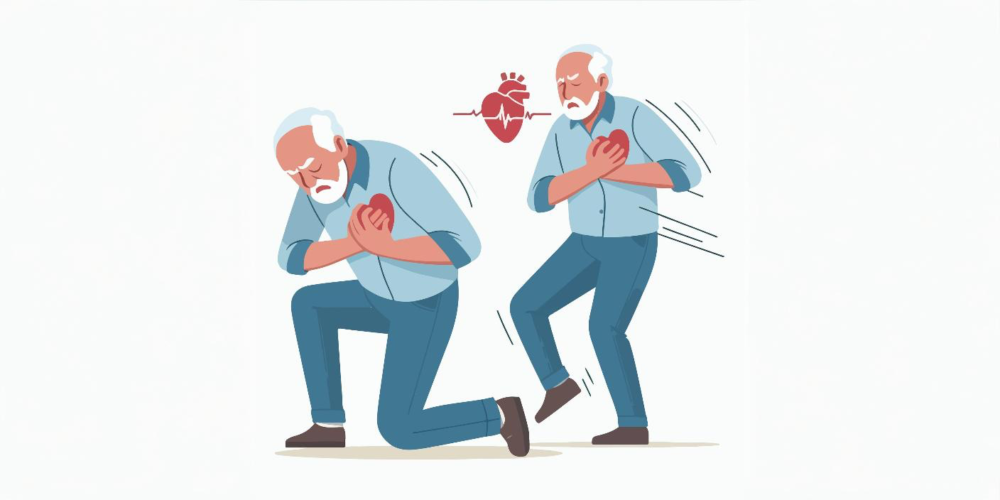Latest
FACT CHECK: Is going to bed immediately after dinner harmful?
Experts advise a 2-4 hour gap between dinner and bedtime, often recommending a short walk after meals for optimal digestion and sleep quality
Author
Author
- admin / 3 weeks

- 0
- 6 min read

Author
CLAIM:
Going to bed immediately after dinner is harmful.
FACT:
Going to bed immediately after dinner can trigger indigestion, bloating, acidity, and disturbed sleep. Doctors advise finishing dinner earlier, walking for 10–20 minutes, and maintaining a 2–4 hour gap before bedtime for better digestion and sleep quality.
The moment we return home, we’re busy planning the next day, setting alarms, and end up lying down right after eating. But could this habit be harming our health?
An Instagram reel by fitness coach and influencer Priyank Mehta, who has 9,81,000 followers on Instagram, has triggered debate around this very question. In the reel, styled as a conversation, Mehta explains that lying down immediately after dinner slows digestion, forcing the stomach to produce more acid. This, he warns, can lead to acidity, bloating, and reflux.
The dialogue further links delayed digestion to higher blood sugar and insulin levels, which promote fat storage in the body. Poor digestion, according to Mehta, also affects the release of melatonin- the sleep hormone, resulting in disturbed sleep, fatigue, and weight gain.
As a solution, he suggests: “After dinner, at least take a 10-15 minute walk. And sleep only after 1-2 hours. This improves digestion, keeps insulin stable, releases melatonin, and keeps weight in control.”
The reel has garnered over 5,98,000 views, 10,927 likes, and 21,500 shares, showing the wide reach of such health advice online. First Check examined whether going to bed immediately after dinner is genuinely harmful or simply a lifestyle myth.
So, is going to bed immediately after dinner harmful?
While there is no direct physiological reason that eating before bed automatically leads to weight gain, several studies have found an association between late-night eating and increased body weight. People who snack or eat close to bedtime are more likely to exceed their daily calorie needs, which can contribute to weight gain. Stress can also play a role, as it raises levels of ghrelin—the hunger hormone—in the evening, making late-night snacking even more tempting. For many, this creates a cycle: eating heavily at night, waking up too full to eat in the morning, and then becoming excessively hungry again before bed. Over time, this pattern can lead to overeating and weight gain.

For individuals with acid reflux, however, eating right before lying down can be especially problematic. Gastroesophageal reflux disease (GERD), which affects millions worldwide, occurs when stomach acid flows back into the throat, causing symptoms such as heartburn, difficulty swallowing, chronic cough, or even dental erosion. Lying down soon after a meal makes reflux more likely, so doctors often recommend avoiding food for at least three hours before bedtime. Spicy foods, caffeine, alcohol, tea, and chocolate can further worsen these symptoms.
That said, not everyone needs to avoid eating before bed.
Research suggests that a small, healthy snack in the evening does not necessarily cause weight gain as long as overall calorie intake remains balanced. In fact, structured snacking may help some people who struggle with nighttime cravings. One study found that adults who replaced unplanned snacking with a bowl of cereal and milk 90 minutes after dinner consumed nearly 400 fewer calories per day and lost weight as a result.
Late-night eating may also provide benefits for certain groups. For people with diabetes, a light snack before bed may help stabilise blood sugar levels overnight and prevent fluctuations such as the “dawn phenomenon” (early morning high blood sugar) or nocturnal hypoglycemia (low blood sugar during the night).
A 2021 study found that eating or drinking less than one hour before bedtime was linked to poorer sleep quality, particularly longer wake times after sleep onset (WASO). In contrast, eating 4–6 hours before sleep was associated with more optimal sleep duration, suggesting that earlier meal timing may support better sleep health.
Another study challenges the old view that all nighttime eating is harmful. It shows that while large, calorie-dense meals late at night are linked to obesity and poor metabolic health, small, nutrient-dense snacks (~150 kcal), especially protein-rich ones, may actually be beneficial. For example, in healthy men, a light protein-rich drink before bed improved overnight muscle protein synthesis and morning metabolism. In obese women, nighttime eating was shown to raise insulin resistance, but this effect was eliminated when paired with regular exercise, and some cardiovascular health markers even improved. For patients with Type 1 diabetes or glycogen storage disease, eating before bed is not just safe but essential for survival.
A recent study using U.S. National Health and Nutrition Examination Survey data (2002–2018) followed 41,744 participants for nearly nine years. It found that late-night eating (especially between 11 p.m. and 1 a.m.) was linked with higher all-cause and diabetes-related mortality, though not with cancer mortality. Importantly, this increased risk was more pronounced when late-night foods were calorie-dense, while eating earlier (before 11 p.m.) or choosing low-calorie, nutrient-dense foods did not show the same risks.
Dr Manjusha Agarwal, Senior Consultant, Internal Medicine, Gleneagles Hospital, Parel, Mumbai, explained: “Lying down immediately after dinner is proven to cause indigestion, bloating, acidity, heartburn, and even weight gain. Studies also show that going to bed right after a meal can raise blood sugar and insulin levels, increasing the risk of fat storage. Eating heavy meals close to bedtime may delay melatonin release—the hormone that regulates sleep—leading to difficulty falling asleep and poor sleep quality.”
She advised maintaining a gap of 3–4 hours between dinner and bedtime, and suggested that a 20-minute walk after meals can aid digestion and prevent discomfort. If someone feels hungry later, she recommends a small, healthy snack such as Greek yogurt with fruits, nuts, or a banana, while cautioning against oily, processed, or canned foods.
Echoing similar concerns, Dr Gita Prakash, Internal Medicine Specialist, Delhi, also stressed that lying down right after eating slows digestion and worsens symptoms of bloating and reflux. “The moment you lie down after a full meal, the food hasn’t yet passed from the stomach, so you feel bloated and uncomfortable,” she said. For patients with conditions like hiatus hernia, she added, it becomes even more critical to sit upright after meals.
She further noted that sleeping immediately after dinner can also affect blood sugar. “When you lie down and relax, the body’s metabolic rate falls. The sugar doesn’t get broken down fast enough, which is why fasting sugar is often a little higher in such cases. Plus, if you go to bed feeling bloated and full, you’re more likely to have disturbed or poor-quality sleep,” she explained.
As practical advice, Dr Prakash recommended finishing dinner by 8:30–9:00 pm and giving the body at least an hour before lying down. “It’s always a good idea to have an early dinner and walk for 10 minutes afterwards. That way, you feel lighter, healthier, and sleep better,” she said.
Also read: Consuming curd, salad, banana, radish at night with dinner leads to diseases










